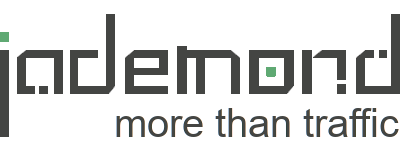SEO is the art of helping the search engine understand what a website is about – what keywords it might be relevant for. SEO managers optimize the title tags, meta description tags, headings and content of web pages. Typically, they add general terms that describe the product, add a “China” to the end of the company name if it’s an international company, … especially within the title tag, because the title is still the strongest SEO cue you can place in the website source code.
However, it appears that new regulatory requirements are changing this important SEO practice.
Regulators tell you how to write meta titles ?
A few days ago, a client of an international company (China division) contacted Jademond. They told us about a strange requirement from the Chinese government: ONLY the company name is allowed in ALL website title tags – nothing else.
They feared the site would be forcibly shut down, so they instructed the IT department to change all titles of all pages to the brand name.
All those carefully crafted title tags with carefully chosen wording for better search engine optimization had been deleted.
What a shocking message!
If the demand is valid, it would have a devastating impact on the Chinese SEO market! Would Baidu give in fast enough to disregard title tags (except for branding reasons)?
It would undo the tremendous efforts made in the past to optimize all titles, because a website has thousands of pages. All the effort of the past would have been for nothing.
Moreover, the website ranking factors and PPC rules for Baidu could change completely. This policy could turn the Chinese SEO and SEA market upside down.
Let’s debunk the myth
Is this a real demand? Will the Chinese government introduce such a drastic policy? To find out the truth, Jademond obtained the customer’s announcement. He sent Jademond a snapshot of an email from the Ministry of Industry and Information Technology of the People’s Republic of China (MIIT).
That email read, “The Shanghai Communications Administration is currently reviewing website titles to see if they violate regulations. We have found that the title of your company’s website www.*****.cn, which is certified by ICP with ICP number [*******], contains ‘China’: Please follow the provisions of the ‘Letter on Verification and Handling of Illegal Use of Website Names’ (MIIT Management Letter No. [2021] No. 495) and change the title in the image below to the website name certified by ICP.”
The snapshot is the private message sent by the data center to the company’s website administrators. Please see the image below:
Jademond believes that the customer has misunderstood the requirement. MIIT requires that ONLY the title of the home page shown in the image be changed to the ICP certified name of the website. The title tags of the other pages can still be retained.

To be on the safe side, Jademond tried to find out if there are any regulatory documents released by the Chinese government. We searched Baidu’s and MIIT’s websites for keywords such as “misuse of website names,” “misuse of homepage titles,” and “changing all website titles,” but found no relevant regulations.
Instead, we found a relevant message from MIIT about “Chongqing Communications Administration checking the misused website names”
In this message, the authority announced that it had checked and corrected the inconsistencies between the website name and the registered ICP name. All network access service providers were required to make corrections within a certain period of time if the information on the website did not match the information in the ICP register. The Chongqing Communications Authority issued a public notice, while the Shanghai Communications Authority sent out a warning.
Why did customers panic in the first place?
Perhaps the reason is Salesforce’s withdrawal from the Chinese market. Salesforce China was a CRM platform that was frequently used by foreign companies in China and had a lot of Chinese user data. However, Salesforce China was in violation of MIIT regulations: The servers on which Chinese user data was stored were not located in China.
According to MIIT regulations, Chinese divisions of foreign companies must locate their servers in China. Therefore, Salesforce China closed its China business, resulting in a big loss.
Many foreign companies in China are afraid of violating MIIT rules, and their websites in China are forcibly closed.
Now the truth is clear: the MIIT’s email is just a periodic review, so the customer does not need to change all the title tags to the website name certified by ICP. If you are still not sure, please check the official websites of Mercedes Benz China in strict compliance. In the picture below, we can see that the titles are generic:


Summary and Advice:
- Fake News: “ONLY the company name is allowed in ALL website titles – nothing else”. The Chinese SEO market will not be destroyed and we are glad that we will not lose our jobs because of this Fake News.Here follow what to do:
- The title tag of the home page (home page only) must be exactly as your company is named in the ICP license. Do not add any other words – especially “China”.
- The title tags of all other pages should still say what each page is about. If you decide to add your brand to the end of each title tag, make sure to do so exactly as stated in the ICP license. Do not add any other words – especially “China”.
- If you have already changed all the titles of the website to the company name, you can correct them again. It should be noted that the title of the homepage should be the name of the website certified by ICP and should not contain “China”.
- Don’t panic if you see abnormal guidelines about SEO. Check the news source and search regulating websites to see if they are true, if necessary.
